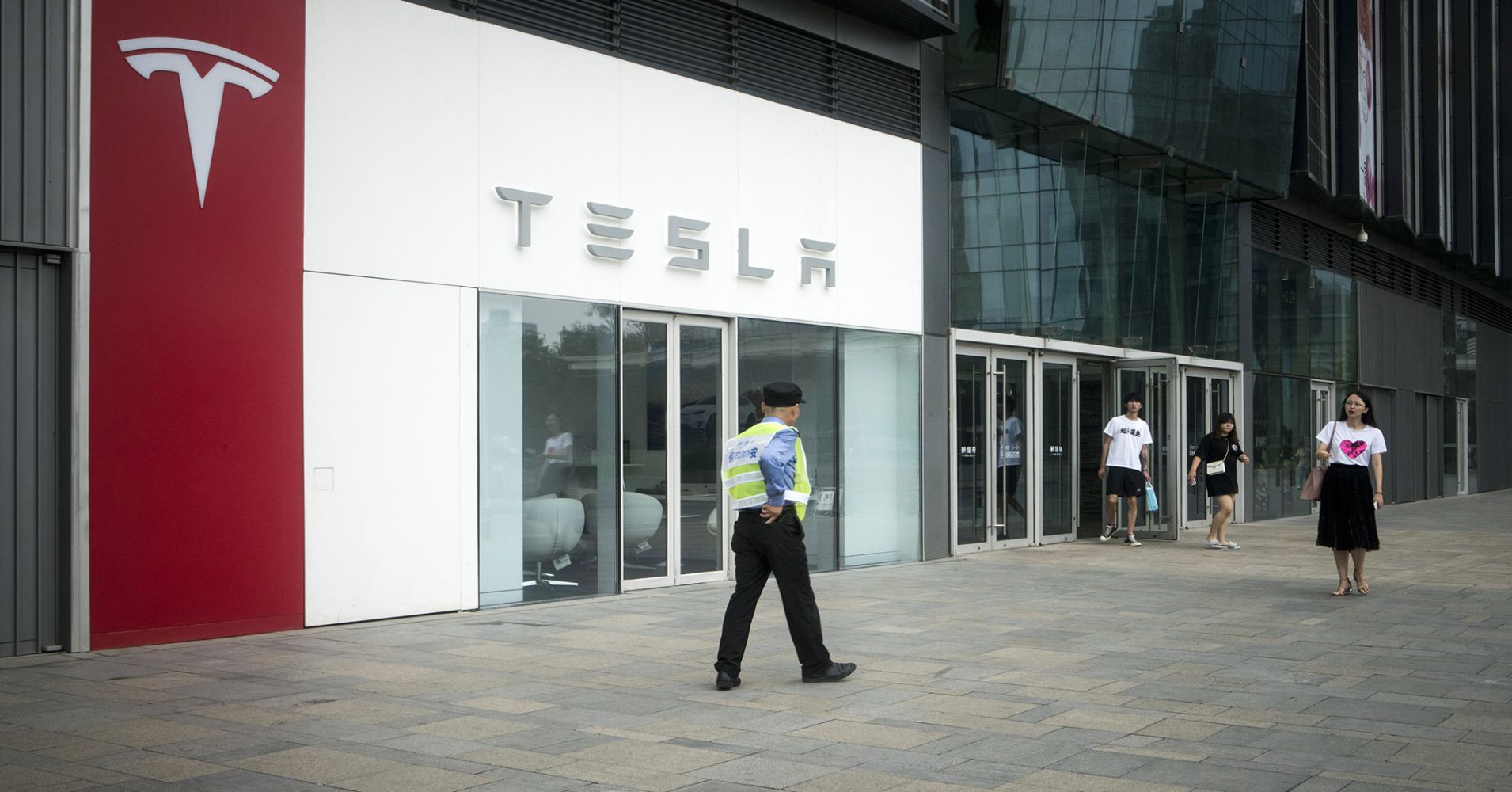Ford surpasses Tesla in market cap on earnings rally, EV demand slump

[ad_1]
Ford’s market capitalization eclipsed Tesla’s by roughly $1 billion on Friday afternoon, pushing the 116-year-old automaker to a higher stock market value than Elon Musk’s electric car maker for the first time since April 2017.
Ford shares rallied by more than 10% on Friday after its Thursday earnings report, while Tesla stock was dragged lower in the second half of the week after a Wednesday first-quarter earnings report that even Tesla bulls could not find any good news in. Tesla shares declined by more than 6% Friday and are now down close to 30% in 2019.
Ford’s market cap was above $41 billion on Friday afternoon, while Tesla’s market cap dipped to near the $40-billion mark.
In April 2017, Tesla had risen above both Ford and GM to become the largest U.S. automaker by market cap, an event greeted with considerable headline attention. But concerns about slumping EV demand (especially in the U.S. as tax credits expire) and Tesla’s dwindling cash on the balance sheet — which declined by $1.5 billion in the first quarter as it paid off debt and invested in the Model 3 — have continued to weigh on shares.
In mid-April, about a week before Tesla reported, bearish bets against its stock represented roughly 27 percent of its publicly available shares, known as the float. Tesla has attracted prominent hedge fund shorts, including David Einhorn’s Greenlight Capital and Jim Chanos of Kynikos Associates.
GM had taken back the market-cap crown from Tesla already and remains the largest of the three, with a stock market value of $56 billion.
“The ship is starting to turn after a lot of work on the fitness of the business, rethinking the product portfolio, working on a number of alliances,” outgoing Ford CFO Bob Shanks told CNBC.
Ford announced Wednesday it had invested $500 million in electric-truck maker Rivian to build a battery-powered electric vehicle, which Shanks said is a “win-win” for both companies.
The reaction to Tesla earnings was widely negative. Wedbush Securities analyst Dan Ives, a long-time Tesla bull, wrote on Thursday in removing his buy rating, that after “years of covering tech stocks on the Street we view this quarter as one of top debacles we have ever seen while Musk & Co. in an episode out of the Twilight Zone act as if demand and profitability will magically return to the Tesla story.”
Tesla’s new CFO Zachary Kirkhorn said on its Wednesday earnings call that Q1 was “one of the most complicated quarters that I can think of in the history of the company and it was ambitious even by Tesla’s standards.”
Kirkhorn braced investors for another quarterly loss in Q2 but said the company should return to profitability in the second half of the year.
Musk and Kirkhorn said on the call that they estimate sales of 360,000 to 400,000 cars this year and Musk said the company has passed the worst of the U.S. tax credit impact on demand.
Ford sold 591,000 vehicles in the U.S. in the first quarter, though mostly trucks (279,000) and SUVs (213,000). Car sales were roughly 98,000.
Wall Street is not convinced that Tesla can turn things around quickly. A capital raise of as much as $3 billion also looms to shore up the balance sheet. Musk, contrary to past history, did not rule out raising more capital this year on the earnings call.
“I don’t think raising capital should be a substitute for making the company operate more effectively … we have made dramatic improvements across the board, and so I think there is merit to the idea of raising capital at this point,” Musk said.
A capital raise could pressure Tesla shares in the short-term as current shareholders see their stock value diluted in a new equity offering, but longer-term, a stronger balance sheet could bring in new investors, Ives recently told CNBC.
Source link






